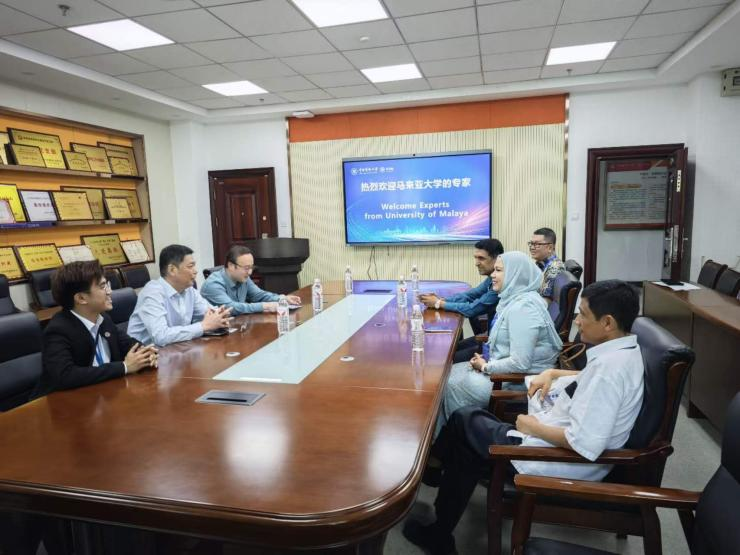On the afternoon of May 17, Professor Hasniza Zaman Huri, Dean of the Faculty of Pharmacy at the University of Malaya in Malaysia, along with Deputy Dean Professor Baharudin Ibrahim, and Professor Wong Tin Wui from Universiti Teknologi MARA (UiTM) in Malaysia, visited our School of Science and delivered academic presentations. The seminar was chaired by Professor Du Ding, Deputy Dean of the School of Science.
Prior to the commencement of the presentations, Professor Tang Weifang, Dean of the School of Science, and Deputy Dean Professor Du Ding received the guests in conference room A241 of the laboratory building and held discussions. During the meeting, Dean Tang extended a warm welcome to the Malaysian delegation and provided a brief overview of the School of Science. Professor Hasniza Zaman Huri expressed gratitude for the reception by the School of Science and hoped to enhance cooperation and exchange with the School in areas such as talent cultivation and scientific research, aiming for mutual benefit and development.
In the subsequent academic presentations, Professor Hasniza Zaman Huri presented on Unraveling Pharmacodynamics of Andrographis Paniculata via Pharmacometabolomics Approach, sharing the progress of her research group's work on elucidating the pharmacodynamics of Andrographis Paniculata using pharmacometabolomics methods. Following this, Professor Baharudin Ibrahim discussed the psychopharmacogenomics and pharmacometabolomics of multiethnic populations in Malaysia, focusing on research into the abuse and dependence of amphetamine-type stimulants. Lastly, Professor Wong Tin Wui gave a presentation titled Cancer Nanotherapeutic Development: Academia-Industry Translational Journey, sharing his research group's experiences over the years in developing nanotherapeutics, from theoretical studies to practical applications.
During the Q&A session, teachers and students actively engaged in lively interactions with the visiting guests.
In the future, the School of Science will continue to deepen international exchanges and cooperation in pharmaceutical education and research, further advancing the high-quality integration of traditional Chinese medicine into the Belt and Road Initiative, and contributing to the building of a global community of health.
